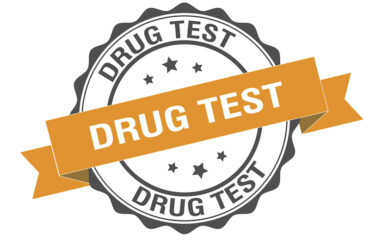Justice Speaks Podcast Episode #18
Crime and Substance Abuse are Linked

The link between substance abuse and crime is clear. About 90% of criminal cases have involvement of alcohol or other drugs. Because of this link, it is not unusual for abstinence to be a requirement for release on bond or own recognizance; a condition of probation; or, a condition of participation in sobriety courts such as DWI and Drug Courts. Alcohol monitoring is the only way to ensure if a person is complying with a court order.
Not everyone, however, needs to have a “no alcohol clause” even if they got in trouble around drinking. For instance, of first time DWI arrestees, 75% will never be rearrested. The incident itself and rather severe consequences are enough to eliminate future behavior. The 25% are usually high risk/high need offenders with a substance use disorder who, without evidence-based treatment, are almost certain to recidivate.
Trust, but Verify
Compliance rates with an abstinence clause are increased if there is verification. Offenders may be required to submit to various tests such as an on-scene breathalyzer during the police investigation (a Preliminary Alcohol Screening [PAS] device) or a breath test after arrest.

Ignition Interlock Devices
Almost every state has laws about Ignition Interlock Devices (IID). These are machines that are installed in an offender’s vehicle(s) that requires blowing into a tube designed to detect the presence of alcohol. If alcohol is detected, then the person is “locked out” of their car and cannot drive. Modern devices are pretty sophisticated in their methods to prevent tampering such as taking a photo of the individual who is using the device, requiring a “hum tone” when blowing into it and requiring restarts to guarantee the correct driver is operating the vehicle. Within the next five years it is anticipated that all new cars will have alcohol sensors either on the start button or the steering wheel.
24/7 and Continuous Alcohol Monitoring
Almost ten years ago, North Dakota became the first state to develop a 24/7 program. This program requires, as a condition of release from custody, the offender to take a breath test at the local police station twice a day. South Dakota has seen a 93% abstinence compliance rate and a 98% completion rate in their 24/7 program. Montana’s Supreme Court in State v. Spady recently upheld the requirement and found it to be constitutional even though it was a pre-conviction requirement. As an adjunct to the 24/7 program the offender may be required to wear a Continuous Alcohol Monitoring (CAM) device. This is useful for those who have no transportation, live in rural areas, travel for work or have other circumstances that would make it difficult for them to turn up at the police station twice a day. These are transdermal devices that measure whether or not the person has been consuming alcohol.

Other Fluids and Tests for Alcohol Monitoring
Breath testing and CAM transdermal testing are the least invasive procedures to monitor alcohol consumption. Both urine and the saliva may be tested as well. Blood testing, perhaps the most invasive, is very much in the news. In Missouri v. McNeely (2013) the Supreme Court required a search warrant before a blood draw could be done on a driver suspected of alcohol-impaired driving who did not consent to such a test. Two cases before the Court this session, Birchfield v. North Dakota and Bernard v. Minnesota test the laws in 13 states that have “implied consent” statutes criminalizing refusals to take a chemical test after being arrested for DWI.
Biomarkers such as EtG (ethyl glucuronide) and EtS (ethyl sulfate) measure unique biological markers of alcohol use and produce no false positives. They can measure use of alcohol for longer periods of time and have other advantages. They are, however, expensive tests but courts are encouraged to use them.
It is clear that some criminal defendants need to be abstinent to be crime free and it is also necessary that their use or non-use is monitored. This supervision can be by the Probation Department or the court itself as in specialty DWI Courts.
Watch a Video of this Discussion
Get more articles like this
in your inbox
Subscribe to our mailing list and get the latest information and updates to your email inbox.
Thank you for subscribing.
Something went wrong.






